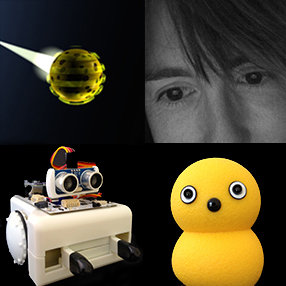This morning was the first of the “Moving Forward” thesis writing seminars. It was mostly to do with writing block, which while it is still there to an extent is not currently my major problem.
The seminar was worrying to start with, as I began to wonder how useful it would be for me, and there were (as usual) many people from sciences and social sciences and not many from arts, humanities and cultural studies. However, it was good, and there was lots of writing time which worked pretty well for me.
The standout thing I took away was the rather depressing fact that writing never gets any easier. It is always like getting into a cold pool for a swim – every day starting to write is going to seem like a really bad idea, and you’re only going to begin to feel better once you’ve taken the plunge and got going.
So, I could finish on that note, but that would be bad! Here’s an idea:
Sometimes I can dive in if I promise myself I just have to do 20 minutes – this doesn’t always work, but if you remember to take a short break after that initial 20 minutes you may well find that you’re ok to continue and write for longer. Even if this doesn’t happen, at least you’ve done that initial 20 minutes!
What if the 20 minutes just doesn’t happen? Well, if I’m just time-wasting (ie browsing/networking) then I suspect (although I haven’t done this very often and should do it more) that I need to remove my internet connection!
If you’re just stuck then try free writing, although I’d try writing about a specific piece of your thesis in this way, rather than just babbling, that way you are more productive, and will hopefully build up your focus so that you can continue on thesis-related stuff.
What is free-writing in this context?
Well, I think I’d describe it as writing for yourself. The element of freedom is more in the style, rather than in the content. Don’t worry about being academic, don’t worry about your supervisor reading it, use “I” to focus on your argument. You can use this piece of writing later, rework it so that it fits into whatever style you need to use, but if you start like this it really is much easier. It also has the advantage of making you write more about what you think, rather than just piecing together what other people have said.
If you find that you can’t flow with your writing, ie you keep stopping, making corrections, going back and editing etc. then a suggestion from this morning’s seminar was to switch your screen off, use a white font on a white background, use a small font so that you can’t read exactly what you’ve written. This sounds extreme, but I think it would help if you find that you’re thinking too much while you’re writing. You want to write something that says roughly what you want it to say rather than being perfect (in any respect).

